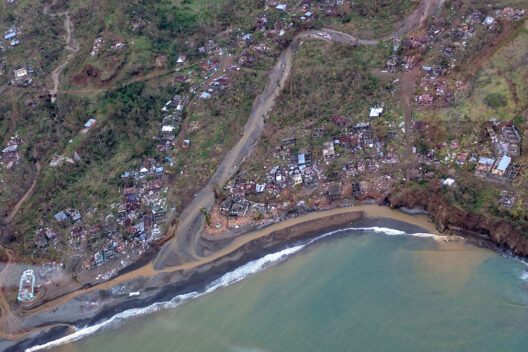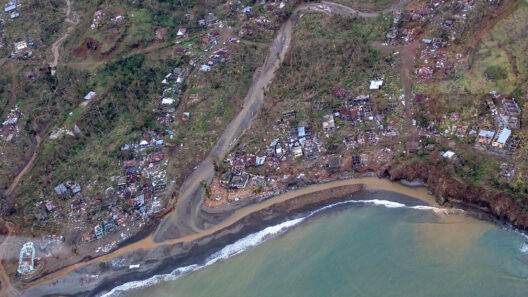Portugal’s climate is an enthralling tapestry woven with threads of warmth, sunshine, and a distinctive Mediterranean allure. But how does this enticing climate truly shape the country and its inhabitants? Beyond the picturesque vistas and sun-drenched beaches lies an intricate relationship between this climate and the everyday lives of the Portuguese people. Exploring the Mediterranean vibes that prevail year-round in Portugal can uncover both its numerous benefits and potential challenges.
At first glance, it’s easy to characterize Portugal’s climate as predominantly Mediterranean. With its hot, dry summers and mild, wet winters, the Mediterranean climate is not only quintessential to the well-being of its flora and fauna but also deeply impacts agriculture, tourism, and lifestyle. This unique climatic condition is primarily influenced by the Atlantic Ocean, which moderates temperatures and provides an essential humidity balance. The transition between summer and winter is often gentle, resulting in a delightful year-round climate that attracts visitors from around the globe.
Portugal experiences a variety of microclimates, particularly along its extensive coastline. The northern areas, such as Porto and Minho, tend to enjoy a temperate maritime climate, characterized by higher rainfall and cooler temperatures. It is in the central and southern regions, however, that the Mediterranean traits truly dominate. Cities like Lisbon, Faro, and Évora boast warmer, drier summers, with average highs soaring into the low 30s Celsius (mid-80s Fahrenheit). These balmy conditions entice not only locals but also throngs of tourists seeking solace from mundane weather patterns in their regions.
The winter months, conversely, present a contrasting portrait. While northern Portugal witnesses a relatively cooler and rainier season, the southern regions bask in moderate temperatures that rarely dip below 10 °C (50 °F). This fairly temperate winter climate sets Portugal apart from its European neighbors, making it an attractive destination for those seeking refuge from the incessant cold and frost elsewhere.
To further illustrate the omnipresence of the Mediterranean climate, one can observe its effects on agriculture. The unique weather patterns foster an abundant array of crops that thrive in these conditions. Olives, grapes, citrus fruits, and a myriad of vegetables flourish, benefitting from the ample sunlight and well-drained soils. This agricultural richness not only sustains local economies but also contributes to the renowned Portuguese cuisine, revered for its fresh, flavorful ingredients.
But while basking in the glow of Portugal’s favorable climate, one cannot ignore the rising specter of climate change. A playful question arises: can Portugal maintain its idyllic Mediterranean charm in the face of escalating environmental challenges? Climate change manifests itself in unpredictable weather patterns, increased frequency of droughts, and altered precipitation cycles, threatening the very fabric of this climatic paradise.
In recent years, Portugal has experienced a notable increase in temperatures, with summer heatwaves becoming more frequent and intense. The ramifications of such a trend are far-reaching. For instance, hotter summers yield higher evaporation rates, creating undue stress on water resources crucial for agriculture and daily living. These conditions also contribute to heightened wildfire risks, causing devastation to arable land and natural habitats alike.
Conversely, the southern coast of Portugal, marked by beautiful beaches and tourist havens, faces another dilemma: rising sea levels. As the oceans warm and ice caps melt, submerging coastal areas threatens not only the economy reliant on tourism but also the cultural heritage embedded in these coastal towns. This precarious balance between preserving natural beauty and adapting to shifting climatic realities introduces an ongoing challenge for policymakers and residents alike.
Yet, despite these challenges, Portugal has emerged as a beacon of hope in the fight against climate change. The country boasts ambitious renewable energy targets and a commitment to slashing greenhouse gas emissions. With the resurgence of local agriculture linked to sustainable practices, communities are forging a more resilient and adaptive relationship with their environment, ensuring that the Mediterranean climate remains a source of pride and sustenance for generations to come.
Additionally, the burgeoning eco-tourism sector shines a light on the importance of responsible travel and environmental stewardship. Visitors are increasingly drawn to Portugal’s commitment to preserving its stunning landscapes and rich biodiversity. This newfound appreciation for nature underscores a deeper understanding of the interconnectedness between climate, culture, and conservation.
The Mediterranean climate of Portugal, with its alluring blend of sun, sea, and viticulture, creates a unique livability that continues to captivate locals and travelers alike. However, a delicate thread weaves through the joys and freedoms promised by this climate: a reminder that such treasures must be safeguarded. As the nation grapples with the implications of climate change, individuals and communities are called to action—whether through sustainable practices or community initiatives—to ensure that this haven remains both resilient and vibrant.
Ultimately, the question remains: how can Portugal strike a balance between embracing its Mediterranean climate and addressing the pressing realities of climate change? Through dedication, ingenuity, and a collective commitment to sustainable solutions, the answer can set a formidable precedent for future generations, allowing Portugal to flourish under the sun for years to come.







